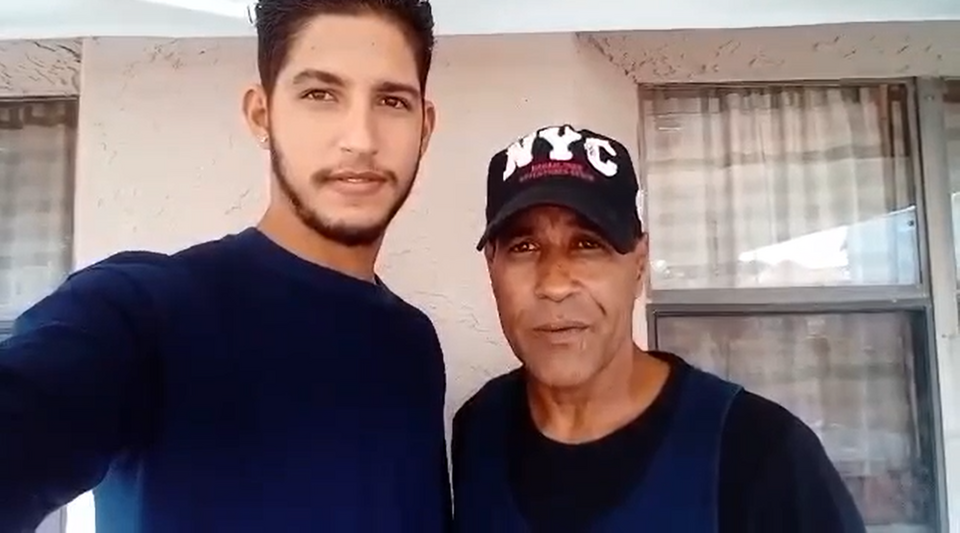LOS ANGELES, United States.- This Tuesday, June 7, the second day of the IX Summit of the Americaswas marked by the denunciations made by several representatives of the Cuban independent civil society about the reality that exists in our country.
In the afternoon, a colloquium on the right to public demonstration in Cuba was held at the Indigo hotel in the city of Los Angeles. The panel, moderated by Mrs. Tamara Taraciuk Broner, Acting Director for the Americas of the Human Rights Watch (HRW) organization, was broadcast live on the social networks.
Convened by the Institute on Race, Equality and Human Rights, based in Washington, the center of the analyzes was events July 11 and November 15 of last year.
Carolina Barrero, art historian and human rights defender; Claudia Genlui, art curator and human rights defender; María Andrea García, Colombian psychologist; Salomé García, human rights activist; Pedro Vaca, rapporteur of the Inter-American Commission on Human Rights for freedom of expression; Juan Pablo Albán, member of the Committee against Forced Disappearance of the United Nations and the undersigned.
Claudia Genlui, a member of the San Isidro Movement, spoke about how the interrelation between the artists that make up that movement managed to have an impact on the community of that humble Havana neighborhood, to the extent that many citizens understood the importance of the struggle for civic empowerment. . She also referred to the fact that the attitude of these artists within the community acted favorably in the consolidation of their ties with the citizens, strengthening their leadership.
Salomé García analyzed the repression exerted against the demonstrators of July 11 and against those who attempted the march on November 15. He affirmed that after these events and the arrest of thousands of citizens accused of different crimes, the repression has extended to the relatives of those who are imprisoned, only for having organized and exposing their considerations on social networks about the unjust sanctions, the abuses suffered by the accused and the difficult conditions in which they find themselves in prisons. He specifically referred to the case of Lisandra Góngora, a mother of five children who has been severely punished as the author of a crime of sedition.
Carolina Barrero referred to the significance of July 11 in the Cuban and Latin American context. She revealed the irresponsible attitude of President Miguel Díaz-Canel Bermúdez by summoning forces loyal to his regime to commit violent acts that were later carried out with total impunity.
María Andrea García referred in detail to the experience she has gained accompanying numerous Cubans who currently have a family member in prison and explained in detail how the systematic repression carried out by the dictatorship against those who oppose it causes psychological consequences. In her opinion, the practices carried out daily by the Cuban political police not only affect the dignity of people, but are aimed at destroying it, causing insecurity and fear.
For his part, Juan Pablo Albán, a member of the UN Committee on Enforced Disappearances, explained how short-term detentions constitute forced disappearances when the authorities act in violation of the law and refuse to provide information on the whereabouts of the detainees. He also referred to the need to foster in the citizens of the continent a culture of denunciation that allows a more objective work of that committee, concluding that the practices appreciated in our continent by states that restrict human rights force us to rethink a new definition of the concept of disappearance.
Pedro Vaca referred to the need for each country on the continent to establish effective guidelines for respecting the right to freedom of expression. In this sense, he pointed out that these guidelines are built when the states allow the criticism and discrepancy of citizens, create a strong institutional framework and guarantee freedom of the press and the plurality of the emission of thought. In the case of Cuba, he was emphatic in expressing that freedom of expression is not guaranteed there. He referred to the aggressive language used by high-ranking representatives of the Cuban judicial system when referring to those accused of these events and expressed surprise at not verifying that the National Assembly of People’s Power had requested to analyze what happened or had carried out actions aimed at establishing political control over government actions. He also said that July 11, 2021 was a citizen expression that occurred not thanks to the guarantees for the exercise of the right to demonstrate, but precisely because of their absence. In relation to the repression unleashed by the Cuban authorities, he affirmed that not in vain of the 22 precautionary measures approved by the IACHR in 2021, nine fell on people residing in Cuba.
In our exposition we refer to the fact that in Cuba the right of public demonstration is only embodied when it is executed to defend the dictatorship, since there is no intention on its part to legitimize dissent. We also expressed our consideration that in Cuba there is no rule of law as expressed in article 1 of the Constitution, but rather that it is a country that has been kidnapped by a political class. In such conditions, aspiring to the effective fulfillment of human rights is pure utopia, highlighting that the events of July 11 were an unequivocal sign of the democratic vocation of the Cuban people and that the repression carried out by the dictatorship against the protesters demonstrates their terrorist nature.
Once the colloquium ended, many of the participants joined the public protest in favor of all Cuban political prisoners, held at the intersection of Figueroa and Olimpic Boulevard streets, in the heart of Los Angeles.
OPINION ARTICLE
The opinions expressed in this article are the sole responsibility of the issuer and do not necessarily represent the opinion of CubaNet.
Receive information from CubaNet on your cell phone through WhatsApp. Send us a message with the word “CUBA” on the phone +1 (786) 316-2072, You can also subscribe to our electronic newsletter by giving click here.






